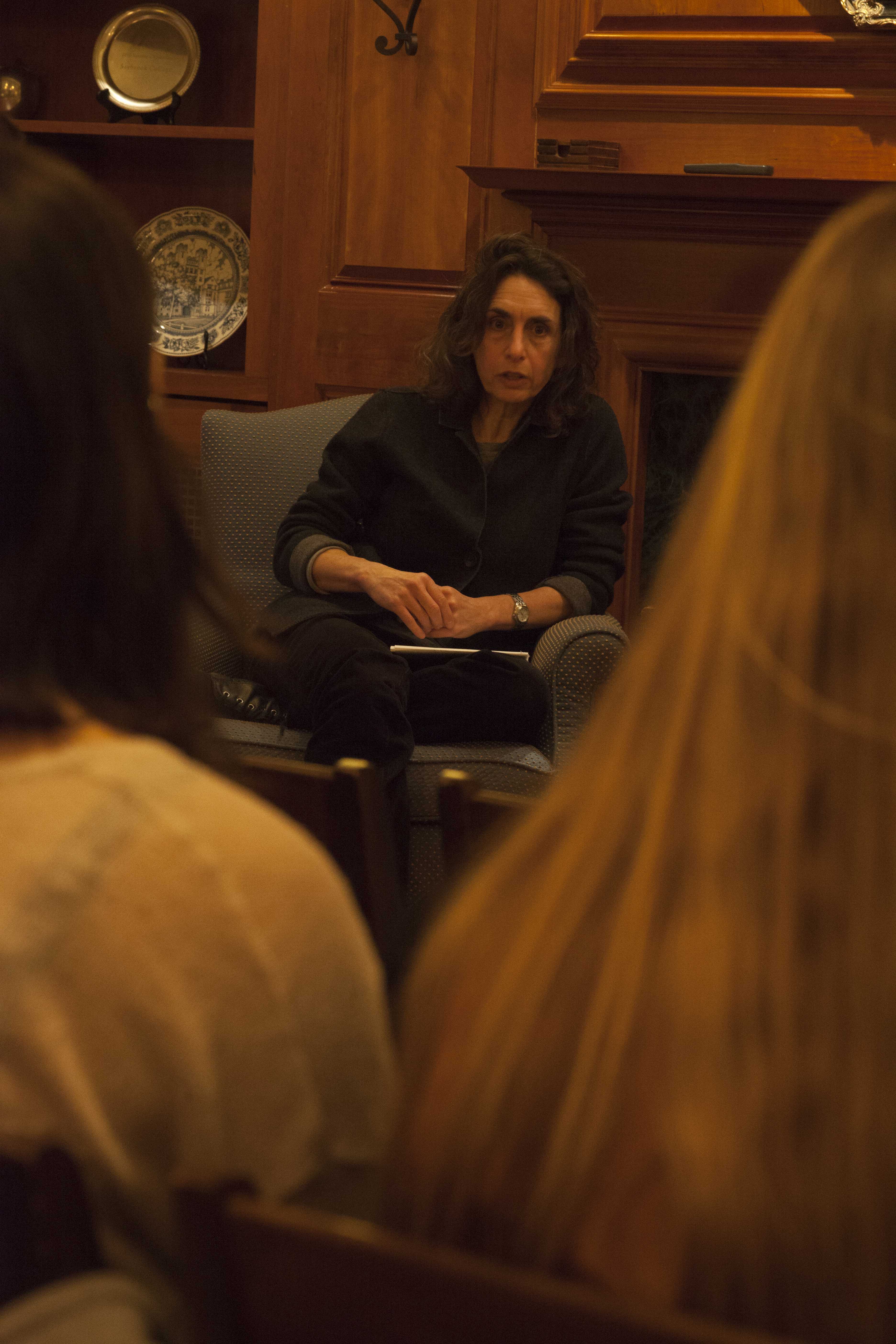
Pulitzer Prize-winning author and New Yorker staff writer Elizabeth Kolbert ’83 spoke to a room of 20 students and faculty on Wednesday about the “man-made extinction” of the Earth’s biodiversity.
Kolbert, who is the author of the Pulitzer-winning book “The Sixth Extinction: An Unnatural History,” spoke at a tea in the Saybrook master’s house about the man-made extinction the planet faces. At the talk, Kolbert addressed the pressing issue of climate change and other environmental concerns.
“There is one thing I can guarantee you, [climate change issues] are not going away in the course of your lifetime,” Kolbert said. “They will be the defining issues of the next century.”
Kolbert said climate change issues are relevant to all people in all careers. While she does not have a scientific background herself, she highlighted her background as a journalist for The New York Times and her subsequent interest in environmental reporting, which led to her involvement in reporting on climate change issues in the early 2000s. She described her journeys to Greenland, the Great Barrier Reef and Alaska to witness the extinction of various flora and fauna as “something you’re not supposed to see.”
Students from diverse academic backgrounds attended the talk and posed questions about the politics surrounding climate change and the roles of national and state legislatures in enforcing preventative measures.
Kolbert answered that while some countries in northern Europe — including Denmark, Sweden and Germany — have progressive environmental policies, no country has gotten it completely right. State and local policies hold more promise for political mechanisms to reduce climate change, she said.
She also criticized the partisan divide on the issue of climate change.
“It’s frightening that there can be a political view on basic scientific facts,” she said.
She added that of the many election seasons that have been “depressing spectacles” on the topic of climate change, the current one especially makes an impression.
Douglas Plume ’16, a former copy editor for the News, said Kolbert’s comments were galvanizing, especially as he is an Alaskan native with firsthand experience with climate change.
Other students said they found the talk inspiring as it showed journalism to be a powerful avenue for dealing with the demanding issues of the current generation.
“Although I’m not the most scientific, I found it interesting to hear her perspective on issues that we forget about that are pressing and will shape our future,” Sarah Siegel ’19 said. “She certainly brings a unique perspective as a journalist operating in the real world and in the science world.”
Kolbert ended the talk by emphasizing the difficulty of paying attention to other environmental issues in addition to climate change, but noting the importance of both.
“People complain that climate change has sucked all of the air out of those issues, but on the other hand, you have to look at both,” she said.
In a review, President Barack Obama called “The Sixth Extinction” “a wonderful book.”







